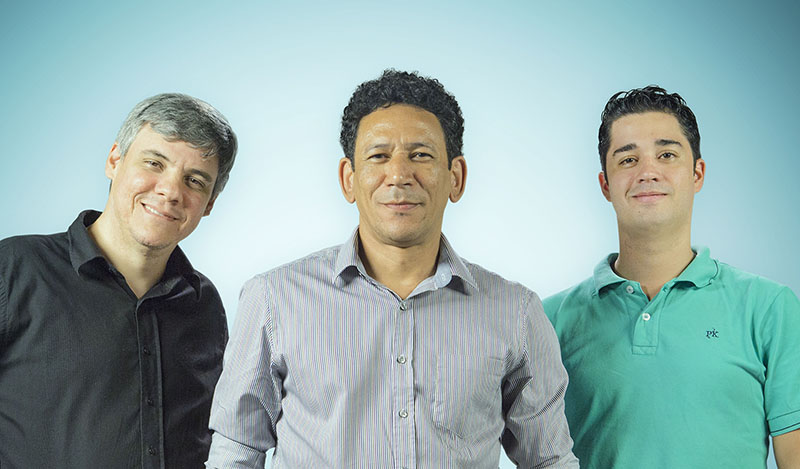
The first half of 2015 was a period of challenge and revenue reduction for most companies in Brazil. Despite the country's structural difficulties, iFractal, a pioneer in Brazil in the development of cloud systems for electronic time attendance, recorded a growth of more than 26% in results compared to the equivalent period last year. Even at the beginning of this second semester, iFractal already highlights an even more positive and expressive growth projection until the end of the year.
Can you tell us how the idea of creating iFractal came about?
The idea came from Felipe, Marcelo and Arthur during an information systems course. Amidst the scenario of technological advancement and access to research on the lack of software in companies, we identified the opportunity to found a company. In 2004, iFractal was created and became the first company to develop solutions for Human Resources in a GNU/Linux environment. The first solutions were ifPDV, a retail point-of-sale system, and ifPonto, a solution for managing point-of-sale records.
What are the main software products in the company's portfolio today?
Currently, the main software are ifPonto and ifAcesso, solutions for online people management within public or private companies, and ifClick, software for scanning and delivering documents by electronic means.
Why did you decide to work with the development of programs based on Open Source?
We decided to work with Open Source software development, because we are convinced of the versatility, security and freedom they offer to our customers and to us.
Since when did they start working through cloud business systems?
From the beginning, the solutions were developed to work entirely on the Internet and, from 2010, we began to operate effectively in the Cloud model.
What were the main obstacles overcome or those that still exist together with the companies?
We have some common obstacles to starting a company in Brazil, ranging from accounting complexity to difficulties in obtaining financial resources to invest in the business. But, since the beginning, one of the main challenges has always been to present to customers all the advantages of the systems in the Cloud model in relation to the local installation options. Another barrier to the company's growth in this model was overcoming the inferiority in which Brazilians voluntarily position themselves compared to the rest of the world and showing the market that national software has all the conditions to compete and even be superior and more functional.
How do you evaluate the evolution of Cloud Computing in Brazil and in the world?
We evaluate the Cloud Computing model as a path of no return. The popularization of internet access and the advent of mobile devices (smartphones, tablets and the like) increasingly solidify the perfect scenario for the evolution of the model, although this concept has been used since the beginning of the Internet. An early example is web-based e-mail such as Gmail and Yahoo, which use cloud computing and have been around since the beginning of the Internet. Google Apps, Amazon and Netflix are some current examples of services that clearly embody the concept of Cloud Computing.
Can hackers' actions affect the expansion of Cloud Computing?
First, it is necessary to clarify the meaning of hacker. In their origin, hackers, unlike how they are usually known and treated by the media, are people of high technical knowledge with ethical principles, defenders of cooperation and knowledge sharing through freedom of information. Unlike crackers, hackers are not cyber criminals and in no way can they affect expansion. As already mentioned in the previous question, the Cloud model is a path of no return. Although the data is on the Internet and accessible from anywhere, it is more secure than the old model where software was installed in companies.
Does iFractal have any partnerships with external research institutes or in universities? Did you use the support of any government foundation, such as Finep or BNDES?
That was one of the first obstacles. In the beginning, we looked for some universities to incubate the company, however, the vacancies were restricted only to the people of the institution. As for Finep and BNDES, we did not have the required guarantees, as most startups do not.
Has the company already exported any of its products or does it have plans to enter the international market?
As the Cloud model is now available to companies anywhere in the world, the ease of entering and expanding our solutions in foreign markets is just a matter of time. We currently have active projects in Argentina and the United States.












